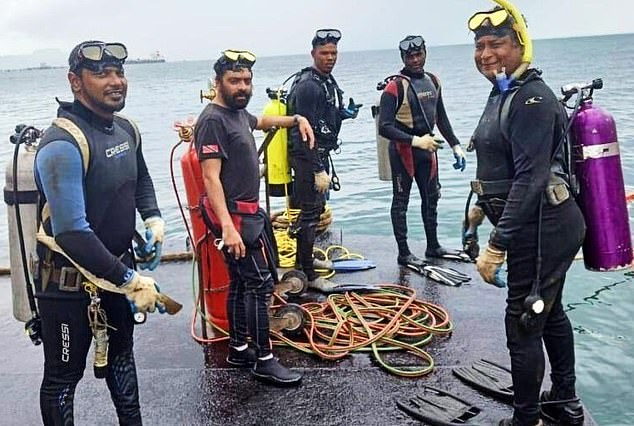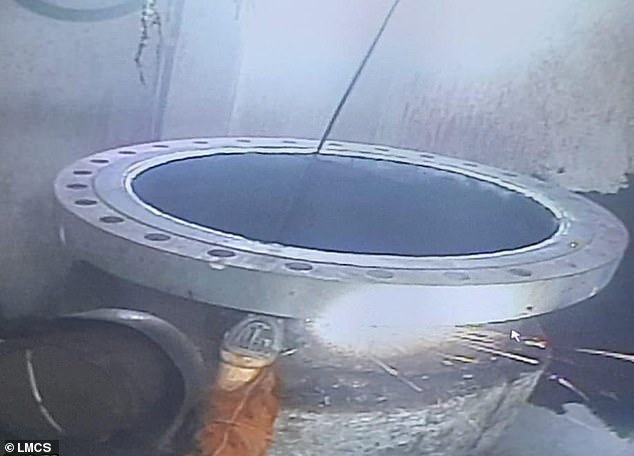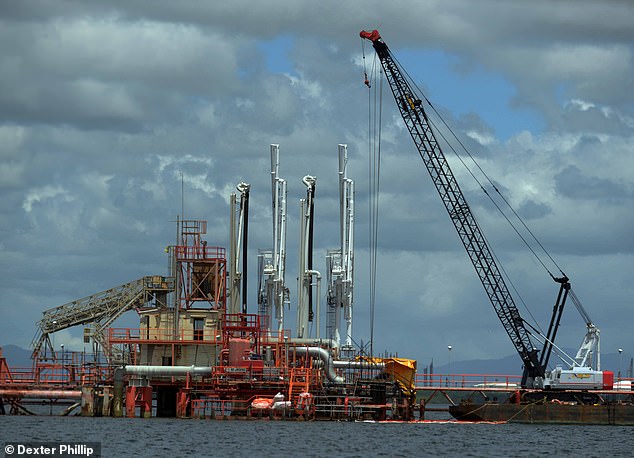On the latest episode of the Daily Mail’s Pipeline podcast, reporter Isabelle Stanley examines the chilling theories as to why Paria blocked efforts to rescue four men trapped in an underwater oil pipe.
From compensation plots to international conspiracy, Stanley interviews legal experts and journalists to test the credibility of theories that emerged in the wake of the Caribbean Diving Disaster.
In February 2022, five divers were sucked hundreds of feet into a 30-inch pipe they were repairing off the coast of Trinidad and Tobago.
Despite one of the divers, Christopher Boodram, escaping after an unimaginable three-hour ordeal, rescue attempts for the remaining four were repeatedly blocked, leaving them to die slowly in what became a national scandal.
The pipe was managed by Paria, one arm of Trinidad’s state-owned oil company.
In the aftermath of the tragedy, Trinidad’s then-Energy Minister Stuart Young launched an official enquiry, led by one of the UK’s top international criminal barristers, Jerome Lynch KC.
Lynch concluded that the four divers weren’t rescued because of a series of mistakes, incompetence and inaction by Paria.

In February 2022, five divers were sucked hundreds of feet into a 30-inch pipe they were repairing off the coast of Trinidad and Tobago

The pipe was managed by Paria, one arm of Trinidad’s state-owned oil company

Despite his recommendation that the oil company be charged with corporate manslaughter, police have issued only vague statements that an investigation remains ongoing
Despite his recommendation that the oil company be charged with corporate manslaughter, police have issued only vague statements that an investigation remains ongoing.
This stalemate and lack of closure has created an information vacuum – which residents of Trinidad have filled with hundreds of theories, trying to work out why Paria abandoned the rescue effort.
Rightly or wrongly, the victims’ families wonder if there is something more… another reason to explain why their loved ones were left to die – something other than pure negligence or incompetence.
Prakash Ramadhar, a lawyer representing two of the victims’ families, told the podcast that he believes the oil giant may have thwarted a rescue to avoid the costs associated with caring for the injured divers if they had been pulled out alive.
He claims any survivors may have suffered life-changing injuries, creating lifelong financial liability for the company.
Mr Ramadhar said: ‘I believe that Paria’s initial belief was that they all had perished and if they had not perished, they would soon perish.
‘As crass as it may sound, there is a belief in the legal fraternity that it may have been cheaper to allow the men to die than it was to rescue them, broken and maimed.
‘Ensuring their medical wellbeing and upkeep for their rest of their lives is far more expensive than allowing them to die.’
To hear Stanley interrogate this theory and many others that emerged in the wake of the Caribbean Diving Disaster, search for Pipeline now, wherever you get your podcasts.












